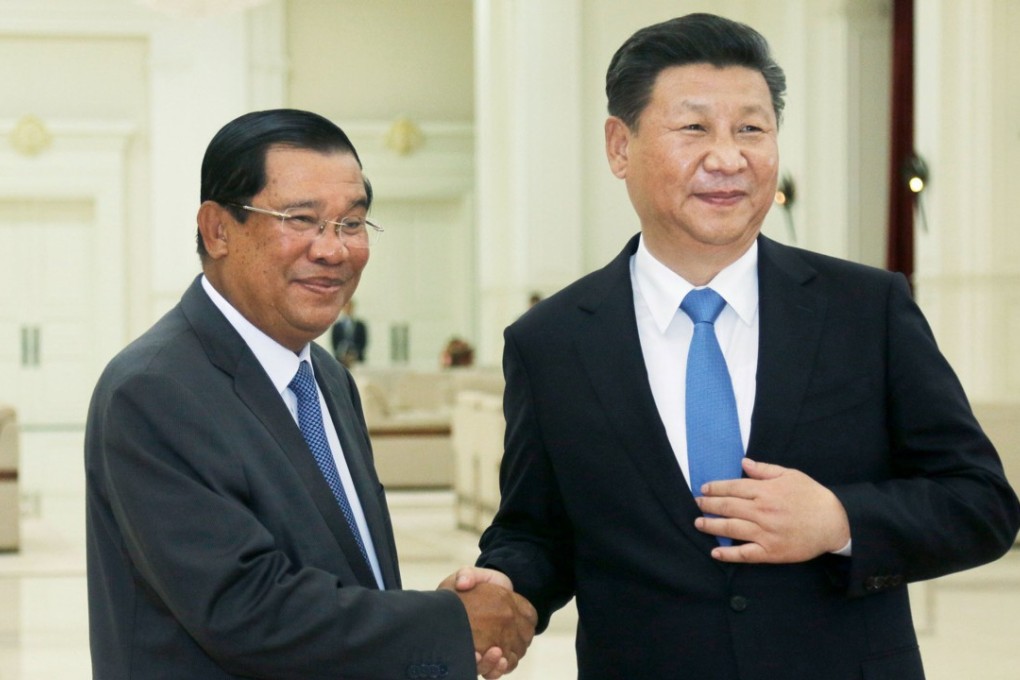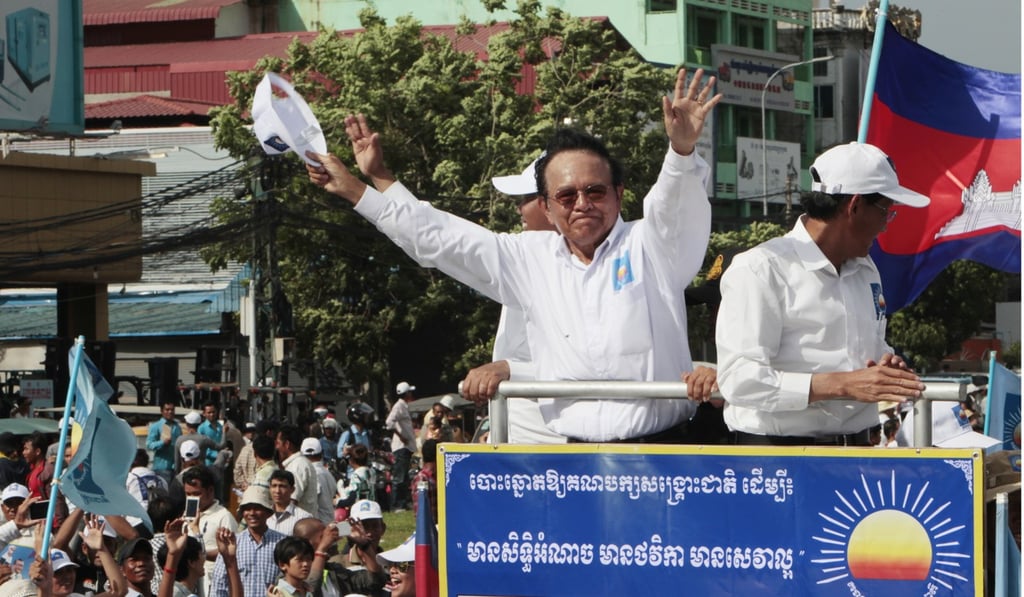China tips the scales away from the US in push for Cambodian influence
Beijing’s investment in Cambodia has been key to the country’s development, but some argue its domination is creating a quasi-colony and if ruler Hun Sen swings more towards Washington, it would benefit the people

Nowhere else in Southeast Asia is China and the West’s battle for political and economic influence more evident than in Cambodia, where strongman leader Hun Sen is poised to clinch an almost uncontested election victory.
During what is the 60th year of bilateral ties between the two countries, China has ramped-up aid to Cambodia, pledging millions in military funding, infrastructure projects and election support. And according to some, the recent display of closeness combined with Hun Sen’s anti-America rhetoric, poses an uncertain climate for US firms beyond the July 29 election.
After the Cambodian government launched its crackdown on dissent – kicking out US-aligned media and organisations, jailing the opposition leader and forcibly dissolving his party – Hun Sen’s relationship with the US and Europe, who condemned the actions, has rapidly decayed.
Washington and the EU have withdrawn aid for the coming election, escalated threats of sanctions and demanded the reinstatement of the rival political group, as well as the release of its imprisoned leader Kem Sokha.

A source who asked to remain anonymous because of their close links to the government, said US firms were still showing interest in the country, but “things are not looking great” for bilateral ties beyond the July 29 vote. They said there was even fear among some that the country was becoming a quasi-Chinese colony.
“Hun Sen used to play such a balancing act [with the US and China], but now he is playing one side off the other … I really don’t know how US business and investment is going to go after this election,” the source said.
